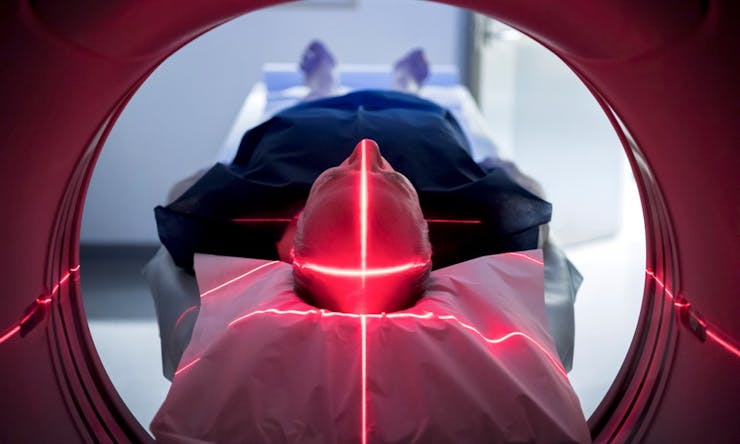While most people associate neurodegenerative disorders with diseases such as multiple sclerosis (MS), Alzheimer’s, or Parkinson’s disease, there are actually hundreds of different neurodegenerative diseases that affect millions of people worldwide. As legalization continues to bring cannabis to the forefront, caregivers and loved ones of patients afflicted with neurodegenerative diseases are increasingly curious about whether medical marijuana can help alleviate symptoms. How might cannabis help the millions of patients diagnosed with a neurodegenerative disorder?
Can Cannabis Treat Neurodegenerative Disease?

Because cannabinoids have neuroprotective and anti-inflammatory qualities, many speculate that cannabis could prove useful in preventing, halting, or reversing debilitating neurodegenerative disorder.
Juan Sanchez-Ramos, MD, PhD, a professor of molecular pharmacology and physiology at the University of South Florida, is optimistic, noting that early laboratory studies have identified cannabinoids which, by virtue of their neuro-protective and anti-oxidative actions, have the potential to “slow the onset and progression of neurodegenerative conditions.”
Sanchez-Ramos cautions we need far more human trials, but the federal government’s long-standing position on cannabis as an illegal Schedule I drug with “no known medical use” has impeded progress of researchers who face unnecessary obstacles to conduct research, a point he argued in a Tampa Bay Times op-ed. The government’s position has “hampered clinical research on cannabis for nearly half a century.”
What are Neurodegenerative Diseases?

“Neurodegenerative disease” refers to a variety of conditions that affect neurons – or nerve cells – in the brain. Neurons comprise the building blocks of our nervous system, including our spinal cord and brain.
The Harvard Neurodiscovery Center put forth a chilling observation:
“If left unchecked, 30 years from now, more than 12 million Americans will suffer from neurodegenerative diseases.”
Another staggering statistic: In 2010, the global cost of Alzheimer’s disease was $604 billion, or 1% of global GDP.
For patients and their families, these incurable, debilitating diseases can be devastating, and given the far-reaching impact of these diseases, researching cost-effective solutions should be a top priority.
Shop highly rated dispensaries near you
Showing you dispensaries nearMost Common Forms of Neurodegenerative Disease
The most frequently diagnosed neurodegenerative disorders are:
- Alzheimer’s
- Amyotrophic Lateral Sclerosis (ALS, or “Lou Gehrig’s Disease”)
- Parkinson’s
- Huntington’s
- Multiple sclerosis (MS)
- Prion disease
- Spinal muscular atrophy
Remarkably, Alzheimer’s is the leading cause of dementia, accounting for possibly 60-80% of cases.
Causes and Symptoms of Neurodegenerative Disease
Many researchers believe a combination of factors may contribute to an increased risk of acquiring a neurodegenerative disease, including traumatic brain injury, genetic mutations and environmental factors (e.g., heavy metals, pesticides). The one consistent risk factor of developing a neurodegenerative disorder, particularly for Alzheimer’s or Parkinson’s disease, is age.
Symptoms, which can be severe and can sometimes cause death, vary across the spectrum, but may include:
- Cognition and memory impairment
- Problems with movement
- Weakness
- Spasticity (tight muscles or exaggerated reflexes)
- Paralysis
- Rigidity or tight muscles
- Breathing problems
- Impairment of heart function
Cannabis and Neurodegenerative Disease Research

Cochrane, the “gold standard” for systematic reviews of controlled trials, last published a review on the efficacy of cannabinoids in the treatment of neurodegenerative disease in 2009.
Their conclusion? No conclusion. Not enough data. Translation: there weren’t any good studies.
Fortunately, since publication, shifting public opinion and the legalization of medical marijuana in more than half the country has encouraged a resurgence of research despite the hurdles that continue to exist. There have been key findings from several reviews in which the authors review a body of evidence from various studies while weeding out poorly conducted studies.
In August 2015, the American Academy of Neurology published an evidence-based systematic review of randomized controlled trials using cannabis or cannabinoids to treat neurologic disorders. They found several cannabinoids demonstrated “effectiveness” or “probable effectiveness” to alleviate spasticity, painful spasms, and central pain commonly associated with multiple sclerosis. They went so far as stating medical insurance should pay for cannabinoid-derived medications such as dronabinol and nabilone for patients who could benefit.
The British Journal of Pharmacology published a review in March 2014 concluding that “modulating the endogenous cannabinoid system is emerging as a potentially viable option in the treatment of neurodegeneration.”
In a 2012 research review, Dr. Andras Bilkei-Gorzo made an observation that almost seems paradoxical: cannabis, which we think of as an impairment to cognitive function, could be the exact opposite of conventional wisdom:
“At first sight, it is striking that cannabinoid agonists, substances known to impair cognitive functions, could be beneficial in neurodegenerative cognitive disorders. However, [we found] cannabinoid receptor activation could reduce oxidative stress and excitotoxicity, suppress neuroinflammatory processes and thus alleviate the symptoms of neurodegenerative motor and cognitive diseases.”
Why Cannabis Research Should be Prioritized

Could cannabis play a role in helping solve what could become a major public health crisis? The research so far is promising, but clearly we still need far more. As a society we need to make research a top priority – it’s the compassionate and fiscally responsible thing to do.
Inevitably, the DEA will remove barriers to conducting the type of rigorous research scientists want (and need) to do, and soon we should have better answers to some important questions:
- Can cannabis or specific cannabinoids boost the endocannabinoid system (ECS) enough to slow down, halt, or reverse the progression of any of the neurodegenerative diseases?
- Can the neuroprotective or anti-inflammatory effects of cannabis or specific cannabinoids prevent onset of neurodegenerative disease or significantly decrease our risk for acquiring a disease?
As anyone who has had a family member with a neurodegenerative disease knows, watching a loved one’s health deteriorate before your very eyes can be one of the most painful experiences you’ll ever go through. We can hope that we continue making advancements in understanding not just the potential role of cannabis, but of the root causes of these diseases. Perhaps then we can alleviate the suffering that millions of families across the world experience.









